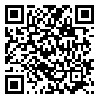Volume 2, Issue 3 And 4 (24 2006)
irje 2006, 2(3 And 4): 11-18 |
Back to browse issues page
Download citation:
BibTeX | RIS | EndNote | Medlars | ProCite | Reference Manager | RefWorks
Send citation to:



BibTeX | RIS | EndNote | Medlars | ProCite | Reference Manager | RefWorks
Send citation to:
Mohammad Shirazi M, Taleban F, Ghafarpour M. Comparison of Macronutrient Intake in Multiple Sclerosis Patients in Tehran with Recommended Doses. irje 2006; 2 (3 and 4) :11-18
URL: http://irje.tums.ac.ir/article-1-176-en.html
URL: http://irje.tums.ac.ir/article-1-176-en.html
Abstract: (17571 Views)
Background & Objectives: Multiple Sclerosis (MS) is the most prevalent autoimmune disease of nervous system in young adults. The current number of diagnosed cases in Iran is above 40000 and is steadily increasing The objective of this study was to assess the daily macronutrient intake of MS patients and to compare this with reference values.
Methods: We randomly selected 108 relapsing-remitting patients were randomly from the Iranian MS society in 2005. Two questionnaires containing personal and medical information were filled for each patient. We assessed food intake by three 24-hour recalls and a semi-quantitative food frequency questionnaire dealing with intake over the past year. Using the Manual for Household Measures, the data were changed to values in grams and then turned to nutrient ingredients by applying Nutritionist-3. Data analysis was done using the SPSS package: m mean and standard deviation were computed for each nutrient and t tests were run to compare the figures with reference values.
Results: MS patients living in Tehran had a dietary intake of total fat, saturated fat and protein higher than recommended, while their intake of fibers was below the reference values. The body mass index was subnormal in 14.8% of the patients and above normal in 38%.
Conclusions: In light of the current pattern of macronutrient ingestion in MS patients in Tehran, a lower intake of total and saturated fat, consumption of vegetable proteins instead of animal protein and more dietary fiber are recommended. To meet this goal, vegetables, fruit, whole grains and beans are good suggestions. It seems that Iranian MS patients need nutritional assessment, counseling and education to improve their diet.
Methods: We randomly selected 108 relapsing-remitting patients were randomly from the Iranian MS society in 2005. Two questionnaires containing personal and medical information were filled for each patient. We assessed food intake by three 24-hour recalls and a semi-quantitative food frequency questionnaire dealing with intake over the past year. Using the Manual for Household Measures, the data were changed to values in grams and then turned to nutrient ingredients by applying Nutritionist-3. Data analysis was done using the SPSS package: m mean and standard deviation were computed for each nutrient and t tests were run to compare the figures with reference values.
Results: MS patients living in Tehran had a dietary intake of total fat, saturated fat and protein higher than recommended, while their intake of fibers was below the reference values. The body mass index was subnormal in 14.8% of the patients and above normal in 38%.
Conclusions: In light of the current pattern of macronutrient ingestion in MS patients in Tehran, a lower intake of total and saturated fat, consumption of vegetable proteins instead of animal protein and more dietary fiber are recommended. To meet this goal, vegetables, fruit, whole grains and beans are good suggestions. It seems that Iranian MS patients need nutritional assessment, counseling and education to improve their diet.
Type of Study: Research |
Subject:
General
Received: 2006/07/31 | Accepted: 2006/12/11 | Published: 2013/09/8
Received: 2006/07/31 | Accepted: 2006/12/11 | Published: 2013/09/8
| Rights and permissions | |
 |
This work is licensed under a Creative Commons Attribution-NonCommercial 4.0 International License. |





